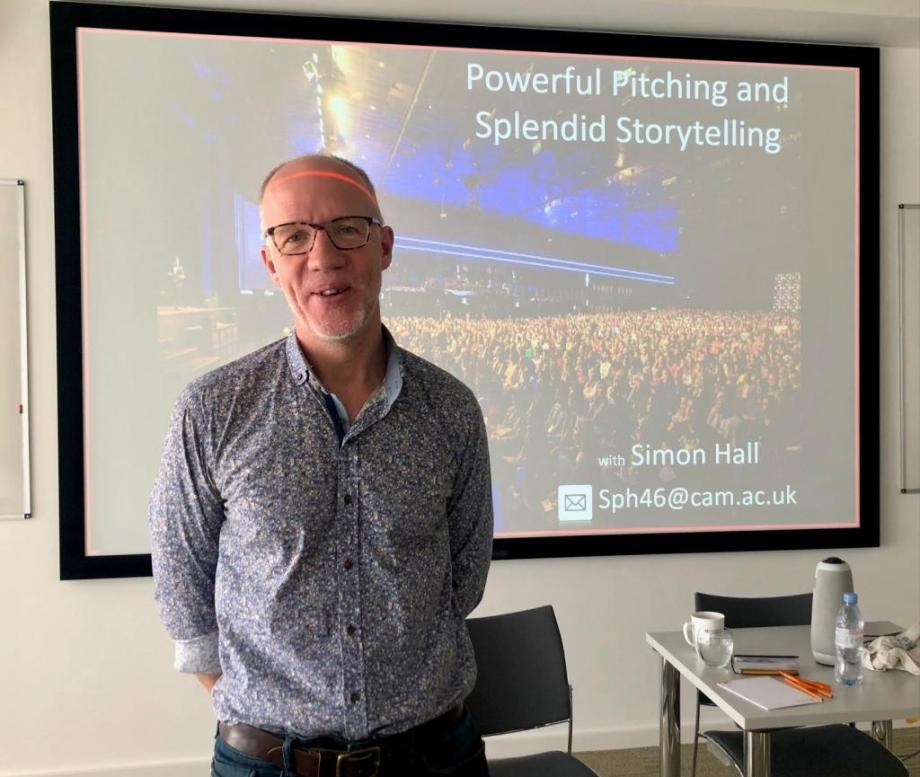Most people appreciate the power of storytelling for making an impact with a message.
But there’s a big fail which I see more than any other.
I call it summarising a story.
It happens a great deal in public speaking and presenting, but also in writing.
Instead of telling a story, the speaker just gives an overview, rather than immersing an audience in the scene.
.
For example, you might take the classic story of Alien. And you could say:
- Humanity faces loads of terrible adversity. We always will, even long into the future. But somehow, no matter how terrible the threat, we find a way through.
Not quite as memorable or effective as the films, that brief precis, is it?
It doesn’t exactly have you transfixed, heart racing, wondering what’s coming next.
That’s an example of summary versus story.
Effectively, it's telling us what the point of the tale is, not showing us.
And that never works anything like as well.
.
I don’t know why people do it.
Perhaps they get nervous about whether they’re any good at storytelling, or that it might be a waste of time which will turn off an audience.
Well, wrong. Very wrong in fact.
Everyone’s a storyteller. It’s part of this app called being human.
We tell stories to our family, our friends, our colleagues.
About what happened at work today, or a funny tale of what someone we know did.
And stories are never, ever, a waste of time. They entrance an audience, not alienate them.
.
For example, as promised, here’s a story I sometimes tell which has an important lesson.
I could say:
- You shouldn’t judge by appearances. Because I’ve met many people who really aren't what you might think.
But is that memorable? Does it make you think, or laugh, or really understand the message?
In other words, truly feel the power of the story?
.
No, I thought not. Because that’s an example of a summary of a story.
In other words, not true and effective storytelling.
Whereas, I could tell it this way, below. Which - I hope - properly immerses you in the tale.
So, when you've finished reading, ask yourself this:
- Which of the two versions makes the impact, and stays with you?
.
At literary festivals, I sometimes teach creative writing. As part of that, I offer one-to-one feedback on drafts of novels.
I'm usually in a large room, at a desk, and the aspiring authors each get about half an hour with me. They rotate between tutors to garner a range of views.
Each changeover is fascinating. I’ll have the person’s name and manuscript, but I won’t know what they look like.
So, as a little game, I scan round and see if I can guess who’s coming.
I was particularly looking forward to the next writer. Her name was Barbara, and her work was excellent.
By which I mean in terms of her ability, not the topic.
Content warning here. The subject was far from pleasant.
.
Her story was about a man who planned to attack women in a forest. He had bought a hunting knife and was lying in wait.
Barbara had cleverly drawn a parallel between this horrible man and a creature known as the butcherbird, which also lived in the forest.
If you don’t know this charming avian, it’s a species of shrike which likes to impale its prey on any available spikes.
Thorns, barbed wire fences, that kind of thing.
I told you it was charming.
.
Anyway, horror of subject aside, Barbara was clearly a talented writer who I was looking forward to talking with. So came the moment of her appointment and I began scanning the crowd, wondering who she might be.
Perhaps in her 30s, I thought. Professional type, smartly dressed in a casual way. Determined, resolute, she would stride over, give me a cool and firm handshake, then confidently sit down.
But I couldn’t see anyone who looked even vaguely like that. Not a bit.
Time ticked on. The crowd was thinning. Most of the writers had managed to find their tutors.
Where was Barbara?
Although...
Hovering uncertainly near my table was a nervous, older lady, dressed in lovely summer colours. She was grey haired, slight, and smiling shyly.
It couldn't be her. No, surely not.
Could it?
.
Barbara? I said, doing my best to hide the surprise.
Yes, she replied.
I made a bad attempt at trying to appear unruffled. I know it wasn’t good, because Barbara kindly asked, Are you ok? You seem flustered.
I am, I admitted.
Oh dear, she replied, so wonderfully gently. I feared this would happen. My writing wasn’t any good, was it? You just don’t know how to tell me.
It took me several seconds to form a sentence.
Eventually, I managed, Barbara, your writing was great. Really good. It’s just that you’re not quite what I expected!
.
After that stumbling introduction, we got on well and have kept in touch.
I’m pleased to say that Barbara went on to become a successful writer, just as she deserves.
The lesson from the story, of course, is age-old, but oh so important.
- Never judge by appearances.



